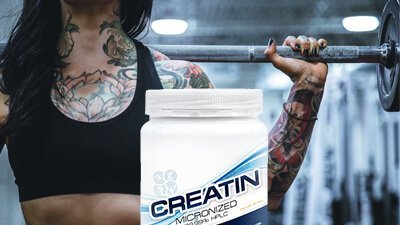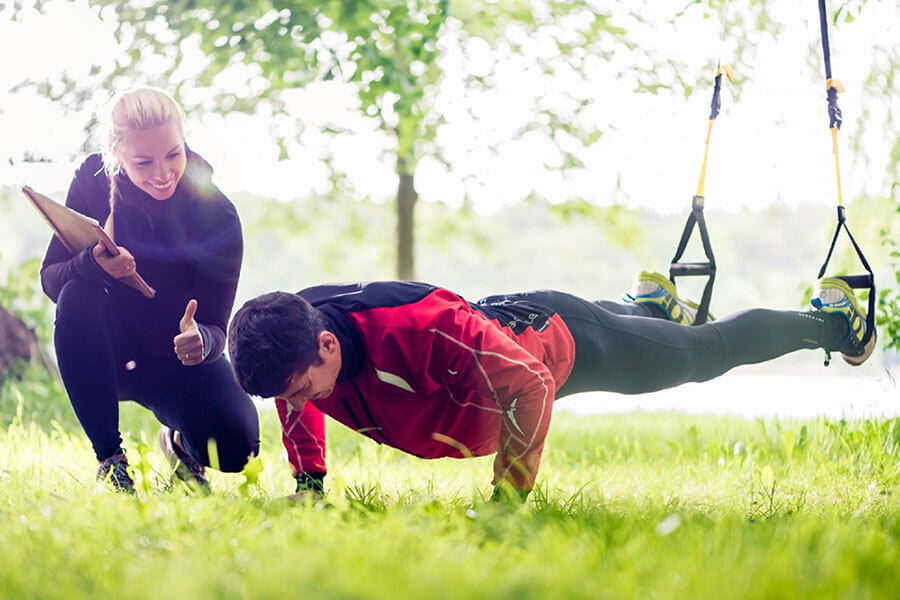In a world that’s increasingly focused on health and wellness, building a successful fitness routine has become a top priority for many individuals.
However, with the rising acceptance of a sedentary lifestyle, poor dieting habits, and lack of motivation, many people don’t engage in sufficient amounts of physical activity. This may lead to various adverse health outcomes.
In fact, the World Health Organization reports that physical inactivity is a significant risk factor for mortality from noncommunicable diseases.
Individuals who don’t engage in sufficient physical activity have a 20% to 30% increased likelihood of death compared to individuals who are adequately physically active.
Figures like these make it even more vital to build a successful fitness routine that improves not only physical fitness but also promotes overall health and well-being.
In this article, we’ll explore the key components of building a successful fitness routine for long-term results.
Assessing Your Goals and Creating a Plan
Building a successful fitness routine starts with assessing your goals and creating a plan that aligns with them. This involves determining what you want to achieve through your fitness routine, whether it’s losing weight, building muscle, improving endurance, or simply living a healthier lifestyle.

Photo by Pexels.com
Once you’ve established your goals, it’s essential to assess your current fitness level and any potential health risks or limitations. Consulting with a healthcare professional can help you identify any areas of concern and develop a safe and effective plan that works for your individual needs and abilities.
When creating your plan, it’s crucial to establish a regular exercise schedule that fits into your daily routine and is sustainable over the long term. Starting with achievable goals and gradually increasing the intensity and duration of your workouts can be beneficial.
Also, keeping a record of your progress and making necessary modifications to your plan can assist you in remaining committed and attaining your fitness objectives in the long run. This may involve regularly assessing your progress, using wearable fitness technology to monitor your activity levels, or working with a personal trainer to fine-tune your routine.
While assessing your fitness goals and creating a plan, it’s essential to note that joining a health club or studio can significantly improve your chances of success.
As per the 2022 IHRSA Global Report, there has been a 3.8% growth in the number of Americans belonging to a health club or studio in the last two years, indicating the importance of the industry despite COVID’s challenges.
In 2021, approximately 21.8% of Americans, totaling 66.5 million individuals aged 6 years and older, were members of a health club or studio.
Thus, having a gym or studio membership can provide you with access to equipment, classes, and professional guidance, helping you achieve your goals efficiently.
Importance of Proper Nutrition and Recovery
Proper nutrition and recovery are critical components of building a successful fitness routine. Eating a balanced diet that provides the necessary nutrients for exercise can help fuel your workouts while also supporting muscle recovery and growth.

Top Pre-Work Supplements – Pros and Cons
While you are exercising to improve your health, there are basic requirements for exercise – supplements. Suitability of a pre-workout supplement is dependent on the type of exercise. Some supplements are designed for increasing power while others are for endurance.
One of the most required nutrients for exercise is protein, which plays a key role in muscle recovery and growth. Along with the consumption of nutrients, the timing of nutrient intake is also significant for overall fitness.
According to a recent study published in the Journal of the International Society of Sports Nutrition, the timing of ergogenic aids and micronutrients such as caffeine, nitrates, and creatine can have a significant impact on exercise performance. The study observed that proper timing of these supplements could not only enhance exercise performance but also aid in gaining strength and adaptation of the body to exercise.
Moreover, recovery is also necessary for building a successful fitness routine. This includes getting enough sleep, as sleep is the time when your body repairs and regenerates tissues, including muscle tissue.

To Get Better Sleep, Strengthen Your Core — Here’s How
According to the American Sleep Association, 50-70 million American adults suffer from a sleep disorder. Be patient and consistent, and soon you’ll be sleeping soundly once again. Here is how to do it.
Other recovery strategies include foam rolling, stretching, and massage therapy. These techniques can help improve circulation, reduce muscle soreness, and enhance flexibility, all of which can support your overall fitness goals.
Working With a Personal Fitness Coach for Extra Support
A personal fitness coach can provide extra support and guidance when building a successful fitness routine. A personal coach can assist you in establishing practical objectives, developing a tailored exercise regimen, providing encouragement, and taking responsibility to assist you in staying committed to your routine.

Photo by lawrence wilcox on Unsplash
A fitness coach can also help you avoid injury by teaching proper exercise form and technique. They can modify exercises to suit your individual needs and limitations and help you progress safely and effectively.
Hiring a personal fitness coach can be a great investment in your long-term health and fitness goals. They can help you make sustainable lifestyle changes and provide ongoing support and guidance as you work towards your goals.
Personal fitness coaches are typically trained in a variety of areas related to exercise science, including anatomy, physiology, biomechanics, and nutrition. They often have degrees in exercise science or related fields, and many have completed specialized certifications or training programs.
Some fitness coaches may have also completed a strength and conditioning degree from an accredited school. Today, many health coaches choose to study at an online strength and conditioning school to expand their knowledge and skills. These online schools provide a flexible and convenient way for coaches to learn and earn certifications without having to attend in-person classes.
Obtaining a degree in strength and conditioning can lead to various career opportunities for fitness coaches. As stated by Concordia University Chicago, individuals with higher education in this field can pursue roles such as Athletic Performance Coach, Strength & Conditioning Coach, Sports Performance Specialist, and Speed & Strength Coach, among others.
This demonstrates the potential for personal fitness coaches to broaden their career paths through continued education in strength and conditioning.
Tips for Staying Motivated and Consistent
Maintaining motivation and consistency is key to building a successful fitness routine that leads to long-term results. Here are a few ways to remain motivated and consistent in your fitness journey:
- Set Realistic Goals: Having specific and measurable objectives can assist in maintaining enthusiasm and focus toward your physical fitness progress. By doing so, you can monitor your advancements and appreciate your accomplishments, which serves as an effective method for staying driven.
- Find a Partner: Having a support system to hold you accountable can be highly advantageous. The awareness of someone relying on you can serve as a strong driving force.
- Mix it up: Repeating the same exercise regimen on a daily basis can become monotonous and lead to decreased drive. Incorporating different types of exercises, such as weight lifting, cardio, and yoga, can keep things fresh and interesting.
- Reward Yourself: Provide yourself with a reward after attaining your fitness goals. This could be a small token such as a new workout gear, a relaxing massage, or a special meal. Rewards can help keep you motivated and make the journey more enjoyable.
Remember, building a successful fitness routine takes time and effort. With dedication and the right mindset, you can achieve your fitness goals and enjoy the long-term benefits of a healthy lifestyle.
Conclusion
Creating a successful fitness routine for long-term results requires commitment, dedication, and discipline. It is essential to set achievable goals, develop a plan, prioritize proper nutrition and recovery, and stay motivated and consistent.
Make sure to pay attention to your body’s needs, give yourself time, and acknowledge your progress throughout the journey. With the right mindset and strategies in place, you can build a sustainable fitness routine that will lead to long-term health and wellness.












